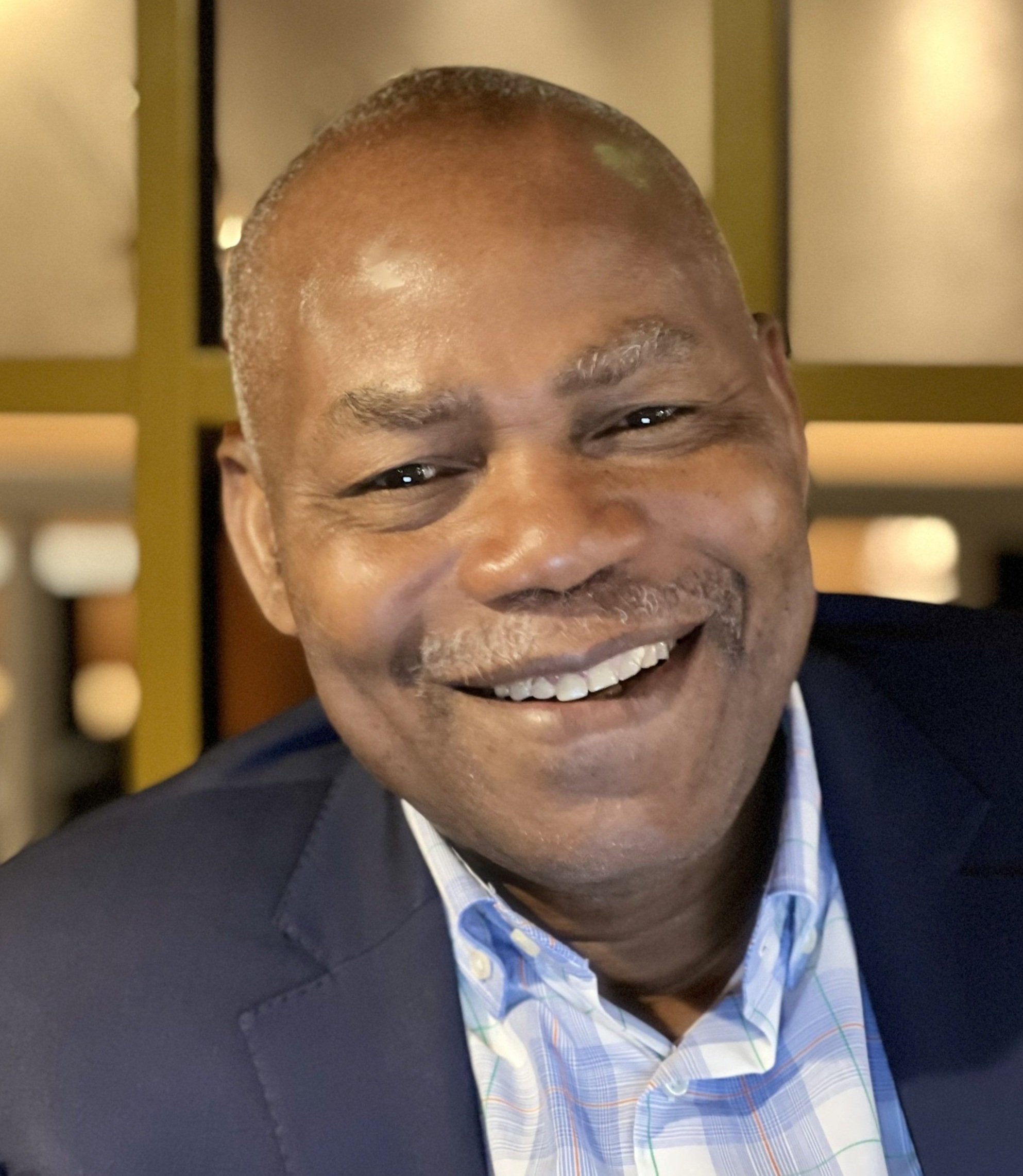BHM 2024: 12 Black Economists You Need to Know.
Written by Adanna Anele
As Black History Month comes to a close, we’re celebrating the achievements of remarkable Black economists who have made a lasting impact in the field. In line with the theme of reclaiming narratives, join us in honouring their legacies and all they achieved despite the challenges they faced along the way!
Also, find out what TBEN got up to during BHM 2024 here.
Dr. Sadie T.M. Alexander (1898 - 1989)
In an era when black people were largely excluded from academia, Dr. Alexander emerged as the first Black woman in the United States to earn a Ph.D. in Economics and the second black woman to receive one in any subject. Despite her exceptional credentials, she faced racial and gender-based discrimination that kept her from securing a professorship in economics. Undeterred, she pivoted toward law, determined to make her mark. At the University of Pennsylvania, she broke yet another barrier as the institution’s first Black woman to earn a law degree. This led her to become an influential advocate for civil rights and social justice. She reclaimed the narrative of what Black women could accomplish in her time. By breaking barriers in both economics and law, she redefined possibilities for future generations. Her legacy is a powerful reminder of resilience, as reflected in her timeless advice: “Don’t let anything stop you. There will be times when you’ll be disappointed, but you can’t stop.”
Sir Arthur Lewis (1915 - 1991)
In 1979, Sir Arthur Lewis made history as the first Black person to win the Nobel Prize in Economics through his innovative work on the "dual-sector model," also known as the “Lewis model”. He had originally planned to be an engineer but realised that racial discrimination would likely prevent him from securing a role in the field. While studying commerce at LSE, he encountered economics for the first time. In 1937, he received a scholarship to pursue a Ph.D. in Industrial Economics. Sir Arthur later became the first Black professor in the UK, taking a post at the University of Manchester, where he conducted the research in development economics that would ultimately earn him the Nobel Prize. His work reclaimed the narrative around the growth potential of developing countries by highlighting how labour from the agricultural sector can move to the industrial sector. Today, his contributions remain foundational to the field of development economics.
Dr. Leonard Wantchekon (1915 - 1991)
Dr. Wantchekon is a former political activist turned economist. Despite starting without formal training or an undergraduate degree, he earned his first degree at 33 years old, an M.A. in economics. He is currently a Professor of Politics and International Affairs at Princeton University with a research focus on African economic development. He is also the founder of the African School of Economics, a university dedicated to cultivating a new generation of African economists and empowering them to address the continent’s unique challenges. He reclaimed the narrative that achievement is bound by conventional timelines, proving that determination and passion can overcome societal expectations. His journey inspires others to pursue their goals, regardless of when or how they begin.
Lisa Cook (1964 - Present)
Dr. Lisa D. Cook was the first African American woman to sit on the Federal Reserve Board of Governors and was part of the Obama administration's Council of Economic Advisers. She has held multiple roles including Professor of Economics and International Relations at Michigan State University and deputy director for Africa Research during her time at Harvard. She received a B.A. in Philosophy, Politics, and Economics from Oxford University and a Ph.D. in economics from the University of California, Berkeley with a focus on macroeconomics and international economics. Despite facing challenges due to her focus on African American economic issues, she reclaimed the narrative that economic research should be inclusive and has been a strong advocate for diversity in economics. She was also one of the earliest supporters of TBEN!
Dr. Ngozi Okonjo-Iweala (1954 - Present)
Dr. Ngozi Okonjo-Iweala is the Director-General of the World Trade Organization and the first woman to hold this position. She graduated magna cum laude with a degree in Economics from Harvard University and earned a Ph.D. in Regional Economics and Development from the Massachusetts Institute of Technology. Before joining the WTO, she was a Managing Director at the World Bank and served two terms as Nigeria's first female Finance Minister, leading significant reforms in economic policy and debt relief. She is the author of several books, including ‘Fighting Corruption is Dangerous: The Story Behind the Headlines and The Debt Trap in Nigeria: Towards a Sustainable Debt Strategy’. Her bold leadership in Nigeria redefined the role of women in governance and policy making. She’s paved the way for future generations of African women to assume critical leadership roles both at home and on the global stage.
Dr. George Ayittey (1945 - 2022)
George Ayittey was an economist known for being the founder of a think tank called the Free Africa Foundation and a strong advocate for self-sufficiency for Africa. He earned a Ph.D. in economics from the University of Manitoba and later taught at American University, where he focused on issues of governance and development. Dr. Ayittey coined the term “Africa’s cheetah generation” to describe young African reformers committed to transparency and innovation, contrasting them with “hippo leaders” who perpetuate corruption and authoritarianism. He is the author of several books including Africa Betrayed and Africa in chaos. Through his books, public speaking, and mentorship, he inspired a movement of African thinkers and activists and reclaimed the narrative of African development by challenging corrupt post-colonial leadership and advocating for “African solutions to African problems”.
Dame Sharon White (1967 - Present)
Dame Sharon White is a prominent British Economist and business woman and the first woman and Black person to serve as Chair of the John Lewis Partnership. She studied Economics at the University of Cambridge and earned an MSc in Economics from University College London, before joining the Civil Service in 1989. She has held other significant positions such as the first woman to be the CEO of Ofcom and second woman to be appointed as second permanent Secretary at the Treasury. She reclaimed the narrative for Black women in corporate leadership and her journey inspires those pursuing private sector careers to embrace new opportunities in business and leadership.
Dr. Miatta Fahnbulleh (1979 - Present)
Miatta Fahnbulleh is known for her work in pushing for systemic change to empower communities and address pressing issues like affordable housing and climate justice. She has had an extensive public sector career and now serves as Parliamentary Under-Secretary of State at the Department for Energy Security and Net Zero and Member of Parliament for Peckham. She is the former CEO of the New Economics Foundation where she advocated for inclusive economic policies aimed at reducing inequality and improving social outcomes in the UK. Dr Fahnbulleh holds a Masters and PhD in economic development from the LSE. She reclaimed the narrative that Black people, especially those from immigrant backgrounds, should engage in politics. Her journey shows the power of representation and resilience in leadership.
Dr Phyllis A. Wallace (1921 - 1993)
Dr. Wallace was the first black woman to earn a PhD in Economics from Yale in 1948. She is known for her work on racial and gender discrimination in the labour market and has conducted studies in the U.S. Department of Labor and MIT, where she became the first Black woman tenured at the Sloan School of Management. Her research focused on structural inequalities in employment and wages, advocating for workplace equity. She was a force in the fight against labour discrimination, standing up for economic justice for women and minorities at a time when few were doing so.Her work broke barriers and reclaimed spaces for Black voices in economics.
Dr William Darrity (1953 - Present)
William Darity is a professor of Public Policy and Economics at Duke University, best known for his work on racial inequality and reparations. He coined the term “stratification economics”, a field which examines how social hierarchies, particularly those based on race, gender, and class, influence economic outcomes and create persistent inequalities. He holds a Ph.D. in economics from MIT and has held numerous academic roles, including directing Duke’s Samuel DuBois Cook Center on Social Equity. His research highlights the need for systemic policy changes to close the wealth gap. He has reclaimed the narrative around racial economic disparities by emphasising that systemic factors, not individual failings, drive wealth gaps. His research continues to challenge traditional economic models and advocate for equity.
Baroness Dambisa Moyo (1969 - Present)
Baroness Moyo is an internationally renowned economist and author, known for her work on global macroeconomics and development. She is currently a member of the House of Lords and sits on the board of companies including Chevron and Conde Nast. She holds a PhD in economics from Oxford University and a Masters degree from Harvard University. She is best known for her book ‘Dead Aid’, where she challenged conventional views on aid, highlighted innovative solutions for sustainable development and emphasised Africa’s potential for self-driven growth. She reclaimed the narrative around Africa’s economic future by challenging conventional views on aid. She is a leading voice on economic reforms that promote African self-reliance and global economic equity.
Susan M. Collins (1958 - Present)
Dr. Collins is an economist and academic leader known for her expertise in international economics, economic growth, and policy. She is the president and CEO of the Federal Reserve Bank of Boston, making her the first Black woman to hold this role. Prior to this, she served as Provost and Executive Vice President for Academic Affairs at the University of Michigan and has an extensive background in public policy and international economics. She is recognised for her contributions to macroeconomic policy and for advocating for greater diversity within the economics profession. She holds a PhD in economics from MIT and her research focuses on economic stability, growth, and inclusive policy-making. In emerging economies. She has served as a professor at the University of Michigan and as a dean at the Gerald R. Ford School of Public Policy.
We hope that you feel inspired!












